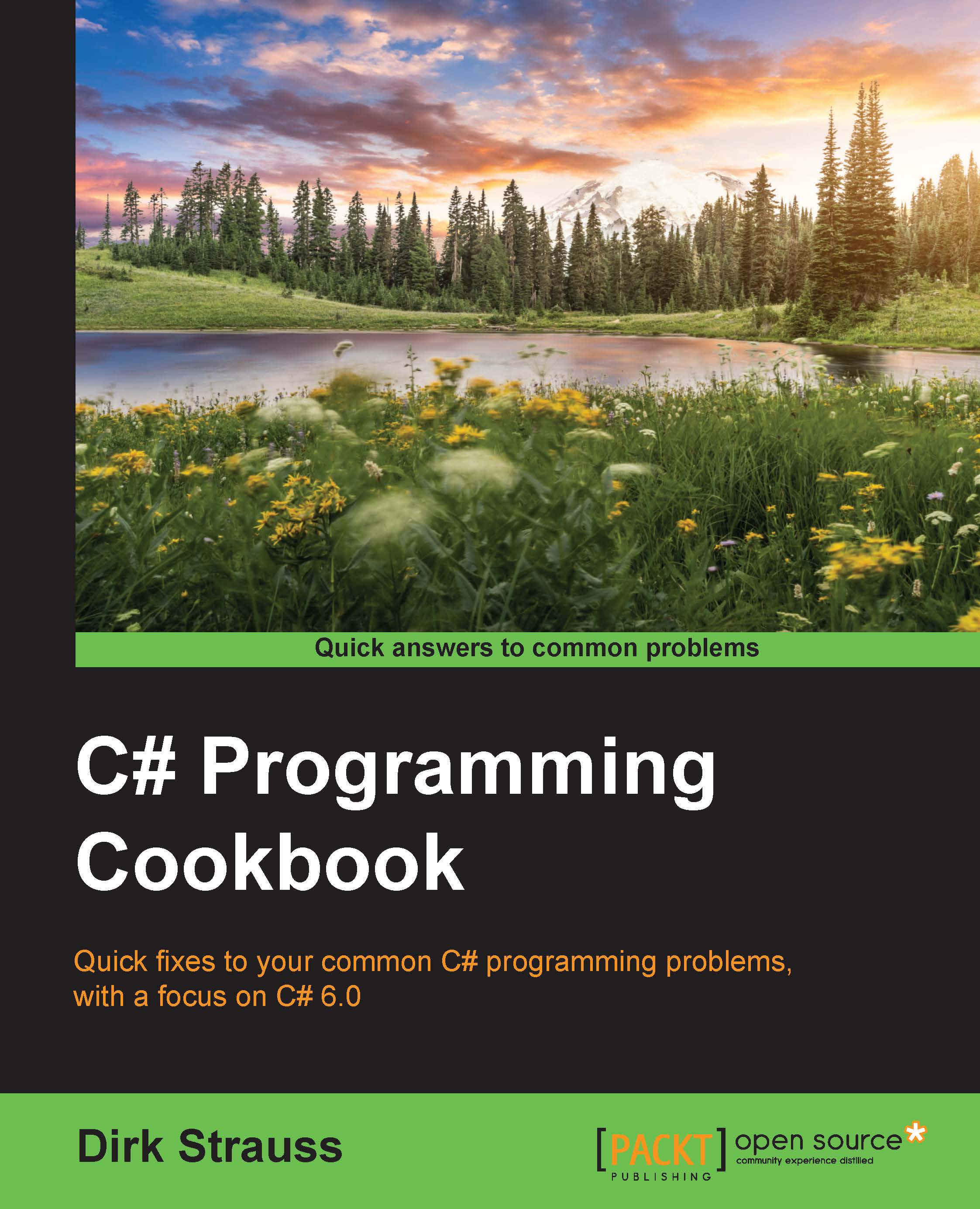Overview of this book
During your application development workflow, there is always a moment when you need to get out of a tight spot. Through a recipe-based approach, this book will help you overcome common programming problems and get your applications ready to face the modern world.
We start with C# 6, giving you hands-on experience with the new language features. Next, we work through the tasks that you perform on a daily basis such as working with strings, generics, and lots more. Gradually, we move on to more advanced topics such as the concept of object-oriented programming, asynchronous programming, reactive extensions, and code contracts.
You will learn responsive high performance programming in C# and how to create applications with Azure. Next, we will review the choices available when choosing a source control solution. At the end of the book, we will show you how to create secure and robust code, and will help you ramp up your skills when using the new version of C# 6 and Visual Studio



 Free Chapter
Free Chapter
